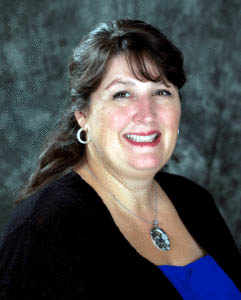Guest column by Michelle Montoya: Teach kids how to be aware of sexual predators
Discovery Counseling Center warns social media is often used to lure children
Published in the April 5 – 19, 2017 issue of Gilroy Life
By Michelle Montoya

Michelle Montoya
Our local schools have recently faced three incidents of criminal activity when trusted educators sexually violated young students in their charge. Parents need to know how to ensure the safety of their children in the classroom.
Paradise Valley Elementary School in Morgan Hill was rocked when longtime teacher John Loyd was convicted of molesting multiple students at two different schools. Gilroy High School was shocked when chemistry teacher Douglas Le pleaded guilty to “catfishing” — tricking students into sending naked and lewd pictures via Facebook. And in February, Gavilan Early College Academy teacher William Dawson was charged with seven felonies for an alleged sexual relationship with an underage student.
What can parents do to prepare their children for the world around them? Start by having honest conversations. In the Kid Safety Workshops offered by Discovery Counseling Center, we teach kids that their safety is primary and more important than politeness or convenience. We have five key strategies to teach your kids to be safe.
Start with Surroundings Awareness: Be alert and aware of who and what is around you. Present yourself as a powerful person, not a victim, by standing tall and walking with a friend. Role play with your child what to do if a stranger approaches.
Teach children to trust their “gut feeling” that tell you when something is wrong: Give kids permission to use their “power voice” if a situation feels creepy. They should speak up loudly from deep in their gut and say “I don’t like that! Don’t touch me!”
Understanding Safe Secrets and unsafe secrets is crucial: A safe secret does not hurt anybody physically or emotionally. Predators use unsafe secrets to trap children. Define for your child unsafe and safe secrets. Teach kids that no activity or touch should ever be a secret. Nobody should ever ask them to keep a secret from their trusted adult. The same is true for safe touch. At Paradise Valley, the teacher was often alone with female students and gave them candy for hugs. In our Kid Safety Workshops, we teach children how to set personal boundaries. No affection for gifts or treats. Define what appropriate touch is. They are in charge of their bodies and nobody has the right to give them unwanted “hugs” or touch them for any reason.
Check in with your teens as well as your younger children: Sometimes kids need you to initiate the conversation. Ask your child every once in a while, “Is there anything you have been wondering about, or that you would like to tell me?” And then listen calmly. Make sure they don’t feel like they have done something wrong. Most importantly, children of all ages need to know they can talk to a trusted adult without judgment. A trusted adult can be a parent, grandparent, teacher or pastor, a coach or the parent of a friend.
With teens, unmonitored social media can be a danger: At Gilroy High, the teacher used social media to attract students. He created an alternate persona — a female porn star — and approached male students online, soliciting and sending nude photos, then developing relationships. This is called “catfishing.” Teens friend unknown persons on the Internet, believing they are who they present themselves to be, and give up personal information, even addresses and photos. Social media sites expose teens to potential “friends,” and most of these friends’ identities are unverified.
How can you protect your kids? Start talking. Educate them about the potential dangers. Role play situations and practice responses. Establish rules for use and as they get older revisit those rules. Have a contract that both kids and parent can agree to. The top three non-negotiable rules are:
• Never give out personal information.
• Never meet without parental permission.
• Talk about who your kids are contacting. They aren’t going to volunteer the information.
Michelle Montoya is the community programs director at the Discovery Counseling Center (www.mydiscoverycc.com). She wrote this column for Gilroy Life.
